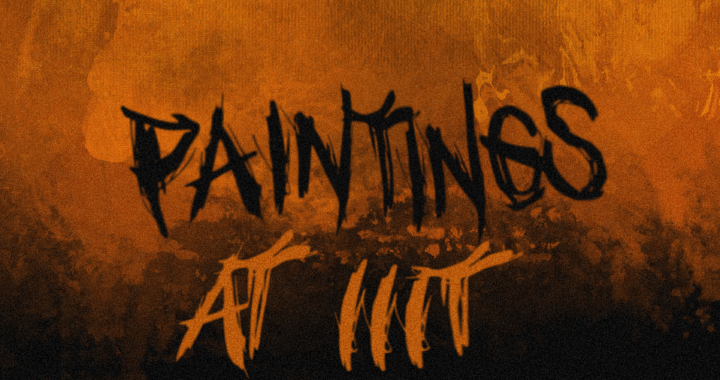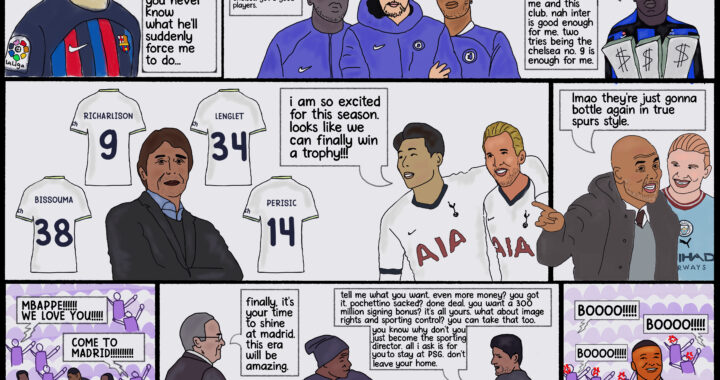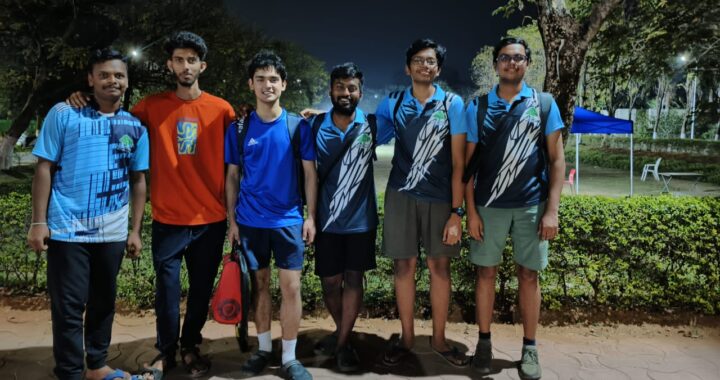When Silence Speaks.
Nobody seems to understand how disturbing silence is for me.
It gives me the shivers, it drives me crazy. It makes me want to pull my hair out and scream.
And it makes me force others to scream. I just can’t help it, but I think I like people better when they scream a lot.
I loved my father. He used to come home drunk after work, and yell at my mother. He had a deep vibrating voice, and when he shouted or laughed you could hear him two houses away.
When he was drunk and screaming, he was louder. I used to hide in the closet when he came home, and close my eyes and listen, savouring every moment. My father had a short temper, he screamed most of the time. One night the cops came and took my father away. I never saw him again.
I still miss his screams.
***
Take it one at a time, the mayor told himself.
He signed the order, and passed it along to his attendant. Then he looked down at the red-faced beefy merchant, who was still scowling in the dock.
“Benjamin Gilbert, I have been presented with substantial proof against you to support Shilton Meyer’s case. This document that I have here, ” the mayor said, as he held a parchment up for an inspection, “states that you took fifty pounds from the baker Shilton Meyer a fortnight before Christmas, and promised him this list -” he paused and held up another yellow parchment, “- of goods within the week. Do you disagree, Benjamin?”
The beefy merchant shook his head. The mayor continued speaking.
“This document also states, in accordance with the law, that you are obligated to return the money in the event of any discrepancy regarding the order’s contents or the time of delivery, which, in this case, is one week. Do you disagree, Benjamin?” For the second time, the mayor peered down through his spectacles at the man in the dock, waiting for a response.
The merchant seemed to have something to say now, he was fidgeting uncomfortably. Twice he opened his mouth and twice he closed it. In the end, he just shook his head again.
“Good. Now, you had to deliver these supplies within the week, Benjamin Gilbert, as it says here, just above your signature, and you are a month late. The festive season is over, and the baker has run into losses because of your delay. Our witness, Mrs. Meyer here -” he pointed to a woman to his left, “– was present at your premises when you refused to honour your agreement with Shilton last week, and had him forcibly thrown out instead. I hereby decree that you pay back the baker a sum of seventy pounds as compensation for his losses, and that you do so within two days. The court -” he pointed to the small group of people in the room, “– bears witness to our proceedings.” There were a few muted acknowledgements. “And if you threaten to harm the baker again in any way whatsoever, you shall have to answer to the law. Do you understand me, Benjamin?”
The merchant, still scowling, nodded slightly; while at the other end of the courtroom, a tall skinny man bowed in gratitude. The mayor absentmindedly waved him away, and the baker bowed once more before turning to leave.
“Give that man his writs, Delfus,” the mayor told his attendant.
“Yes, my Lord.”
“Next!” the mayor called, a little weary from the day’s proceedings. Petty thefts, domestic quarrels, a man who’d accused his neighbour of stealing his goat – the mayor was fed up with Sunday court. He had better things to do for his town than playing judge: there was the issue of the highway contract coming up soon. Sometimes, he wondered why he’d never left Nashwen, why he’d chosen not to move out of this anonymous town in the middle of nowhere, with a population just shy of five hundred. Tourism was their only source of income – if ever the government built a new highway, Nashwen would be wiped away. And if last week’s meeting with the governor was anything to go by, there would be a new highway. Route 22 would be having competition soon. But, as his old man had once said, when you’re born in Nashwen, you die in Nashwen. And the mayor’s job was to save his town now. He leaned back upon his chair, and took a deep breath.
Then he remembered what the next case was, and immediately sat upright in his chair again. He had an important decision to make now.
“Call in the murderer, Delfus” he told his attendant.
He would take it one at a time.
***
The restaurant was too silent yesterday. I was uncomfortable. There were six people inside, and nobody was talking, because their mouths were full. There were no vehicles on the street outside either – the afternoon was too hot and dusty. There was no gossip, no low voices, no sounds through the window, no nothing. Just the occasional clatter of fork against spoon, and the quiet hum of the fans. I called for the manager and asked him to make some noise. He said he didn’t understand. I told him to put on some music, or break something. He just stared at me.
Make some noise, you bastard, I screamed at him. He asked me to leave. He said the customers wanted silence, and that I was being a nuisance. When I was about to leave, he said he wanted payment first. I didn’t have enough money, so he wouldn’t let me leave. He wouldn’t let me f***ing leave. I started shouting, but then he hit me, and wouldn’t let me do it. Someone was calling the cops. In the meanwhile, the silence was getting too strong. I was losing it. I was just f***ing losing it. The silence was killing me. I told him so – I pleaded with him to make some f***ing noise. He wouldn’t. So I took a knife off the table and put it to his neck.
Well, then he started screaming wonderfully.
***
The mayor watched them leave quietly; the baker and his family, the fat beefy merchant and his lackey. And as soon as the merchant departed through the door, a set of guards walked in, with a chained prisoner in tow. The mayor could sense a sudden tension grip the air, and feel the small audience in the stands straighten up from their stupor. A man near the door suddenly stood up and started yelling at the prisoner, but the mayor lifted his hand for silence, and got it. The mutterings stopped, and the hall turned quiet as death.
The prisoner was a short wiry man with a thin moustache and a limp. He had his head down, and was struggling to keep up with the guards around him, dragging his left leg along. The procession covered the brief length of the hall, and then one of the guards, a ginger-moustached fellow, pushed the prisoner roughly into a chair in front of the dais. The prisoner fidgeted uncomfortably, and then looked up at the mayor. He had a fair expressionless face, and a long crooked nose. His eyes were swollen, and his face was adorned with fresh bruises. The murderer was still a young man, but the guards had not been kind to him.
For a while nobody spoke. This was the first time most of the men in the courtroom had seen the man in person; for the past one week they had only known him by word of mouth. The mayor could sense a sense of unease in the murderer; he was squirming uncomfortably in his chains. Suddenly, the murderer started shaking his chains violently, and the crowd gasped in fear. Three of the guards grabbed him, and the fourth landed a deft blow to his head. The prisoner grimaced, and stopped fighting. The noises died away. Silence again.
The mayor watched the murderer, trying to assess the situation. Why had he rattled his chains?
Surely the man wasn’t contemplating escape? He had not stopped fidgeting though, and still looked very uncomfortable. Was it guilt? Fear? The mayor decided that it did not matter. He started sifting through his papers for the brief notes he had prepared for the murderer’s case.
Take it one at a time, he told himself.
***
See, I never wanted to kill the man. Why would I do that? He was screaming so beautifully, it was like poetry. I would have kept that knife to his throat all day, and listened to those screams in peace.
But then someone tried to grab me from the back. A smart bastard took hold of my elbows, and tried to jerk them away. My hand slipped, and the next thing I knew, the manager’s screams had stopped, and there was blood all over the place. The moment of silence that followed was so profound my ears almost burst. It was as if the world had paused to watch me die.
Then everyone started screaming.
I joined in, and there we were, five people screaming out of fear at the top of their voices, and my own happy roar accompanying the orchestra. I blocked the door so they wouldn’t run away, a red dripping knife in my hand. When one man paused, I held up the knife to his face and asked him to keep screaming. He looked at my face with eyes full of fear, then obliged – they all obliged. They were still screaming when the policemen came to take me away.
I’ll never forget that afternoon. It was like paradise.
***
The mayor paused and looked down at the murderer in surprise, because the latter had suddenly started singing.
The mayor stared at the prisoner in outraged disbelief. Staring down at his own feet, the murderer was unabashedly chanting The Old Hill and A Sun, his mellow voice echoing through a shocked chamber. But before anyone could react, the ginger-moustached sergeant grabbed the prisoner by the hair, yanked his head up, and drove his baton hard into the face. A dull thump and the prisoner was silent again. The mayor could see blood dripping from his mouth, and a few broken teeth. A servant handed him a rag. The prisoner shook his head and chuckled. The guard lifted his baton again, but was interrupted.
“That will do,” the mayor said,” and you are?”
“Sergeant Marshall, m’Lord.”
“Sergeant Marshall, you will await my word before you manhandle a prisoner next time, do you understand? Murderer or not, in another town and in another court of law, there’d be a jury and a representative for the defence who could land you in deep trouble for what you just did.”
“Beg your pardon, m’Lord,” the man bowed, ” but he keeps gettin’ louder. He ‘as been doin’ that since we took him into custody, m’Lord. He won’t shut up till we break somethin’. Nasty one, him.”
The mayor eyed the murderer with contempt. The man was showing no fear for the court and no remorse for his crime. It was as if he didn’t even know what was happening. Was the ignorance genuine? Behind the prisoner, the stands were getting loud again.
“Are you sure the doctor procalimed him sane, Delfus?” the mayor turned back and quietly asked.
He couldn’t afford to make a mistake.
“Yes, my Lord. Here is Dr.Robert’s statement,” Delfus said, as he handed out another set of documents. The mayor took them, and briefly ran his eyes over the yellow paper. He turned to the prisoner again.
“Do you understand, murderer, that we have established your crime, and that now you await my verdict?”
The murderer looked up. “Yes, my Lord,” he burbled, his mouth a mess. A bubble of blood burst at the corner of his lips. The low mutterings of the audience had now become a loud hum.
“Enough! ” The mayor lifted his hand, and silence returned. He addressed the prisoner again.
“And yet you seem undisturbed and unashamed of your crime, and act like a madman. Do you not fear the noose?”
The prisoner twisted back in his chair to take a look at the people behind him, a sea of hostile furious faces glaring back at him in silence.
“Let them shout, my Lord.” he remarked with concern. “Silence unnerves me.” Then he seemed to remember the question. “Death comes but once, my Lord, I do not fear it. But silence? Silence lingers forever, like a shroud. No, I do not fear the noose half as much as I fear this silence, my Lord. Please, let them shout.”
The mayor did not understand. He did not want to.
“You are not helping yourself with such replies, Jones,” the mayor said, “Now, my last question to you. I would like you to answer this carefully.” He lowered his voice and earnestly asked the prisoner, “Do you confess to the murder of Graeme Montgomery, the manager of The Keepsake, or do you wish to plead not guilty?”
The man chained in the chair said nothing for a while. When he spoke, his bloody face was contorted with glee, and his eyes were wild.
“I killed him, my Lord, it was a sorry thing to do,” he said, his tone quivering with excitement,
“But you should have listened to him scream before he died. It was beautiful.”
So be it, the mayor thought, making up his mind. “Lock him away,” he told the guards, and then called for his attendant. “Make sure he’s not kept with the other prisoners, Delfus. We don’t want more trouble from this man.” The attendant nodded and hurried away to meet the guards.
There was a sense of expectancy in the stands now. The mayor could sense it. They were all waiting for the verdict.
* * *
I feel uncomfortable in this makeshift prison.
The air is musty and reeks of apple cider, and the walls are damp and empty. I don’t think the old farmer who owns this house wanted me in his cellar, but the ginger-moustached sergeant seemed to think I would be a danger to the other inmates at the local prison. Here, in the middle of nowhere, with four guards keeping watch outside,the sergeant must think I’m less of a menace. But here, in the middle of nowhere, silence creeps up on me like a storm upon the sea. I don’t think I can stand it much longer without breaking.
Two days ago, the judge told me that I would be hanged tomorrow. I’m fine with it. Life is a pain in the ass, and there’s too much silence in the world these days anyway. I don’t think I belong here – I gotta go. Perhaps my father is waiting in hell. They keep me locked in the cellar most of the day; I’ve been here the whole week. The nights are terrible –the first few days, I shouted to myself to kill the quiet. But then, today the sergeant beat me up and then poured some nasty stuff down my throat. I can’t scream now. I know it’s all going to be over when they hang me next morning. But first, I must deal with the silence of the night. I think I know what to do.
The trapdoor at the back has a rusted lock and a missing screw, and the only tools I have is my wooden spoon and dinner plate. The wood is tough and the rim is sturdy, though. I think I could use it to unscrew the other three screws on the lock, before prying the metal apart from the door with the spoon. I must be quiet: the cook usually sleeps in the kitchen above me, and I know she keeps her window open at night. I saw her this morning when they were taking me down, chopping meat with a broad shiny knife. While they were hustling me down into the cellar, she looked at me with wide pitiful eyes, the poor old thing. She adds extra cheese to my breakfast, and second helpings of boiled peas. I think I like her sharp and shrill voice. It reminds me of a song.
I hope she’s sleeping in the kitchen tonight.
The guards are sloppy when they change shift at midnight. They hang about in the lobby and talk in loud bawdy voices. I’ll lock the door from the inside, so if they’re close to the kitchen and not too drunk tonight – they might hear the beautiful screams for hours.

 Paintings of IIIT
Paintings of IIIT  Football: The 2022/23 Pre-Season Saga Illustrated
Football: The 2022/23 Pre-Season Saga Illustrated  What If Online Was The Norm
What If Online Was The Norm  Not For Long
Not For Long  A perspective on sports in IIIT
A perspective on sports in IIIT  The Tale of Jagruti
The Tale of Jagruti  Cleaning up the Mess?
Cleaning up the Mess?